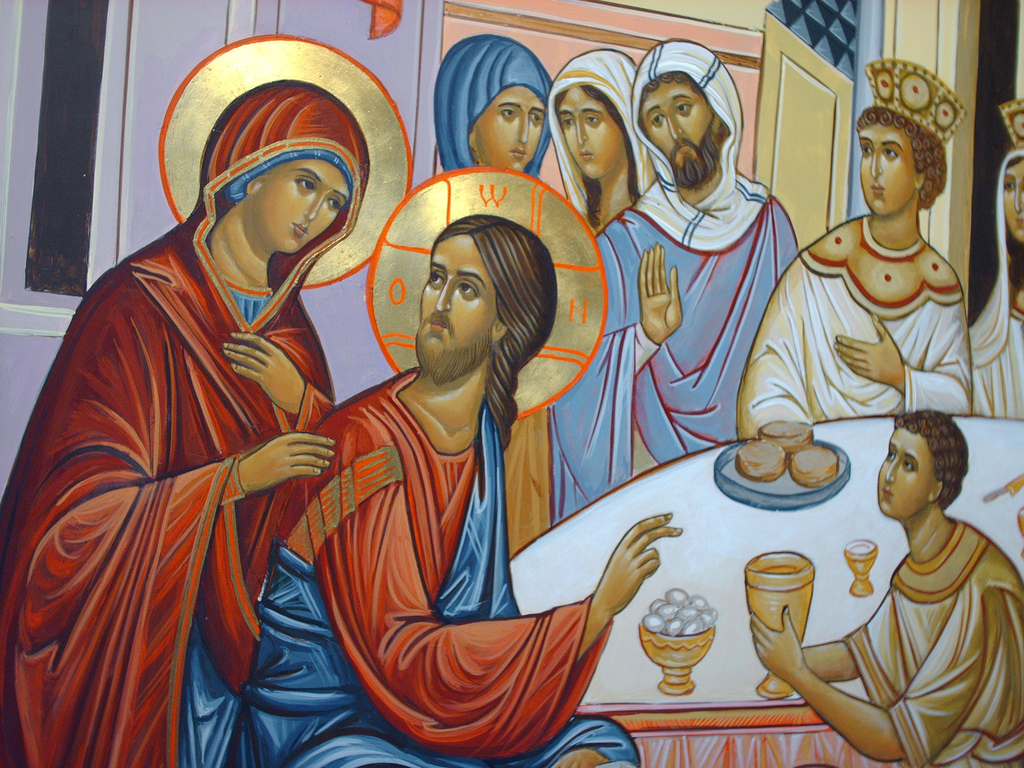Today’s readings remind us of the importance of the Word of God in our lives and of those who help us to understand it. Our Lord never meant us to try following his Word without help.
In today’s First Reading, the priest Ezra, as part of a liturgical assembly in honor of the dedication of the newly rebuilt Temple in Israel, reads the law for hours to the people in order to help them to renew the covenant and understand how to live it. It was probably the first five books of the Old Testament (Genesis, Exodus, Leviticus, Numbers, and Deuteronomy). The Israelites found their identity in the words of the Law, just as we find it in the Sacred Scripture today, especially in the Gospel. In embracing the Gospel we haven’t discarded the Old Testament: God’s Word endures throughout history to guide us and to shape our identity, then in the life of Israel, now in the life of the People of God. The New Testament helps us to understand the Old Testament more deeply. Just as in Ezra’s time, we don’t understand Sacred Scripture just as individuals. We gather to hear and be helped in understanding the Word of God by our sacred ministers: bishops, priests, and deacons.
In today’s Second Reading Paul, envisioning the Church as one great body composed of many members with different functions, strengths, and weaknesses, notes that the Church has certain members of the body that help understand the Word of God. As the Church we are one body in Christ: through Baptism we are incorporated into the Mystical Body of Christ. It was one Spirit that moved us to believe in Jesus and seek Baptism—the Holy Spirit—and that same Spirit sustains the unity of the Body, like a soul.
We became a part of this Body after we not only heard the Word of God, eliciting the faith in our souls, but put our love, faith, and trust in the Word—Jesus—completely, through Baptism, making our lives Christian in a way we never could alone. Although we are one Body and have one Spirit in Christ, we don’t all have the same role within the Body, just as the head, the toe, the heart don’t have the same role in a human body. Thanks to the apostles, the prophets, and the teachers we’re always sure to understand and live the Word of God as he has been communicated to us. The apostles and prophets may now be in Heaven, but their words continue to transmit God’s Word to us.
In today’s Gospel Luke explains to Theophilus that he sought to check and compile all concerning Jesus that had been written or handed down by other “ministers of the word.” Our Lord too in today’s Gospel reads from the prophets, but presents something new, something that represents his Incarnation and mission and sheds light on all the Word of God. He has come to fulfill everything promised through the prophets, and to give meaning to the history of salvation lived until that moment. What we call the Bible today was passed along through oral and written traditions, compiled into books at various moments of salvation history, and the Church, aided by the Holy Spirit, established as the canon (rule) of Scripture those books we read and meditate on today. Without God’s Word we’d soon lose our identity and our way in a world plagued by ignorance, confusion, and evil. Sacred Scripture continues to ensure that we have access to the Word of God, spoken through all of salvation history, and remain united in the Word of God, Jesus Christ. Just like Ezra, Paul, and Jesus himself, the Lord blesses us with people who conserve and interpret what God has said to us throughout salvation history.
While sacred ministers help us know the authentic interpretation of the Word of God in Sacred Scripture, they don’t have a monopoly on learning Sacred Scripture. There are many good commentaries on Sacred Scripture to help us understand the Word of God more deeply and put it into practice: The Navarre Bible, Ignatius Catholic Study Bible, Catholic Commentary on Sacred Scripture, and Catholic Study Bible are just a few examples. Reading a little of the Word of God daily is important, but seeking a little help in understanding it will help you meditate on it even more fruitfully.
Readings: Nehemiah 8:2–4a, 5–6, 8–10; Psalm 19:8–10, 15; 1 Corinthians 12:12–30; Luke 1:1–4, 4:14–21. See also 3rd Sunday in Ordinary Time, Cycle C, 14th Sunday in Ordinary Time, Cycle B and 22nd Week in Ordinary Time, Monday.



